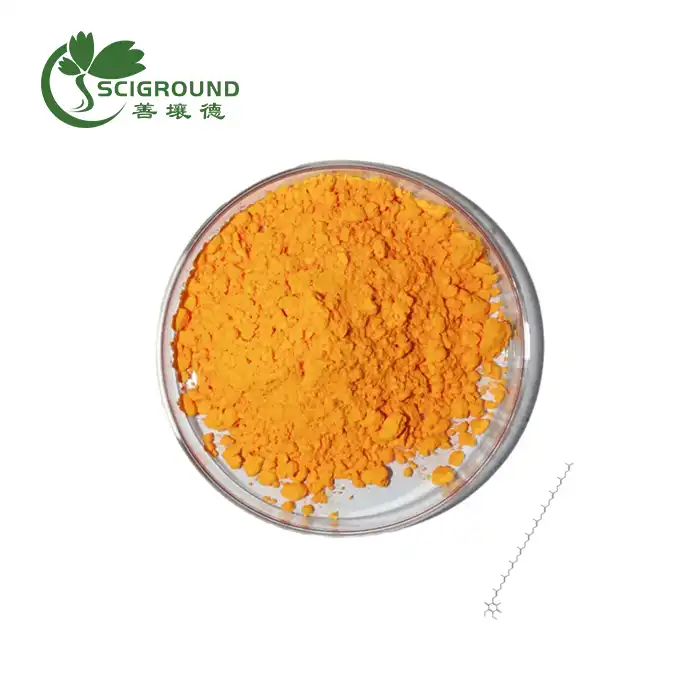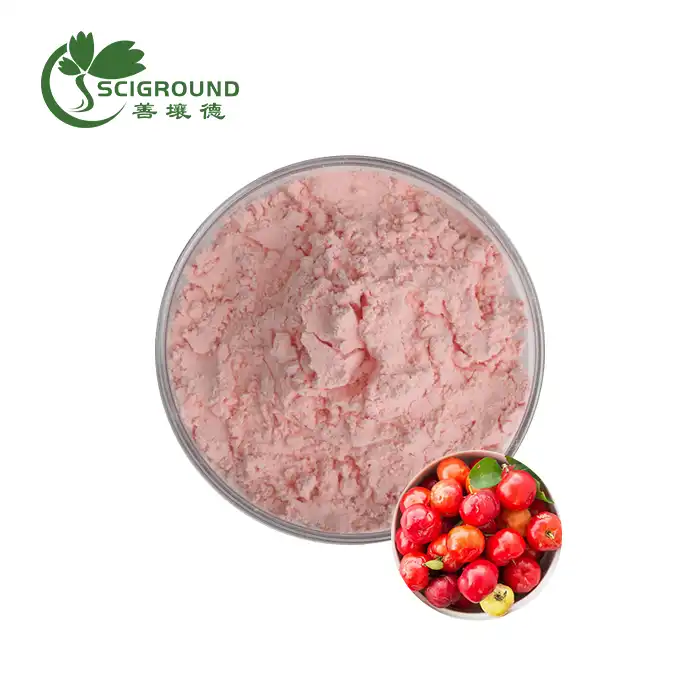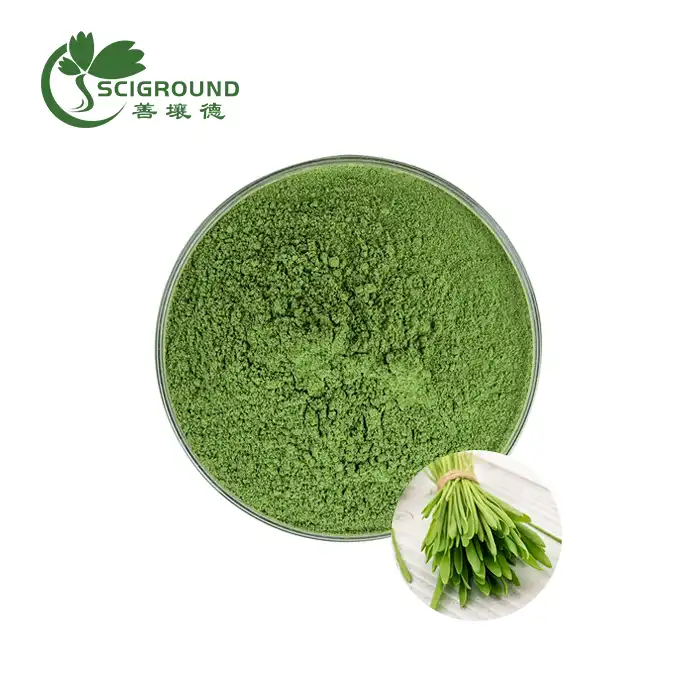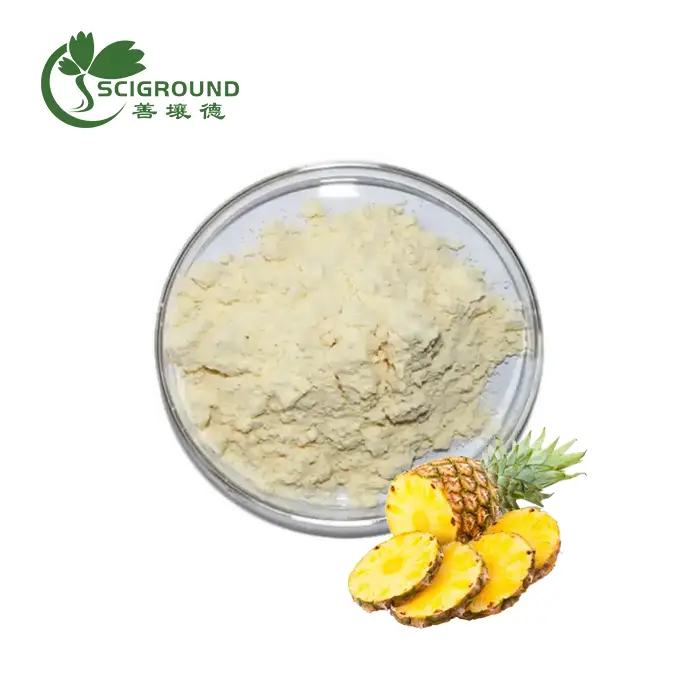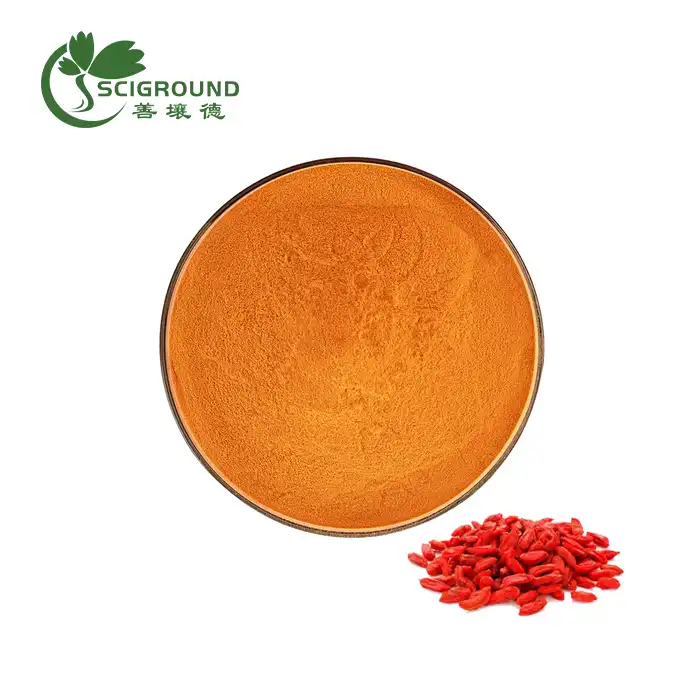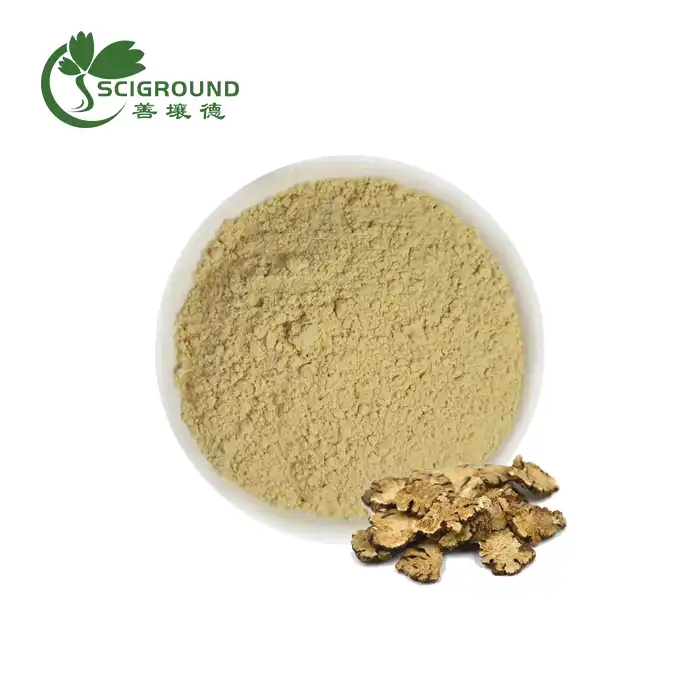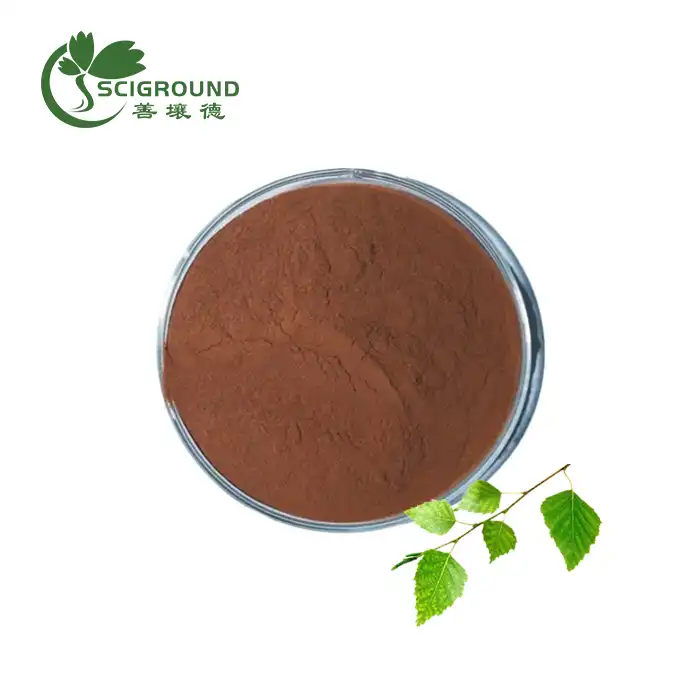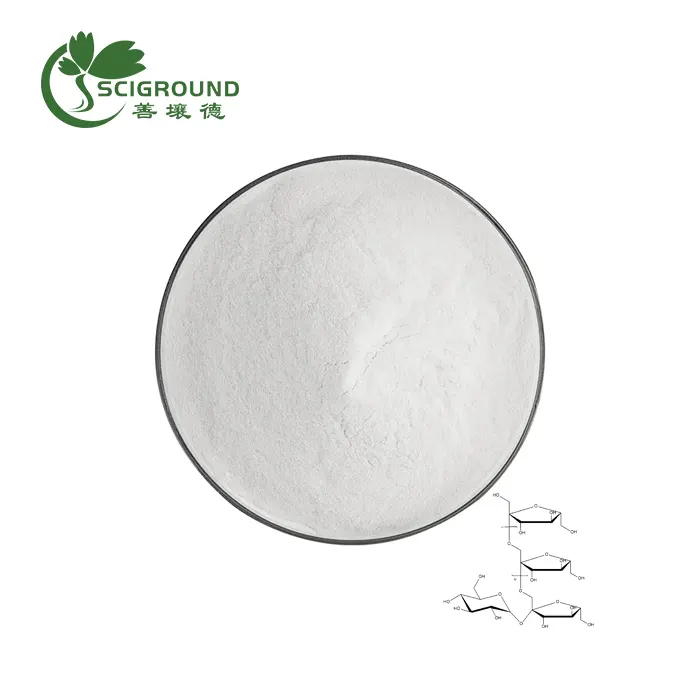What are the benefits of Morinda Officinalis Extract?
Morinda Officinalis Extract, derived from a plant with a rich history in traditional Chinese medicine, has gained attention for its numerous potential health benefits. This powerful extract offers a wide range of therapeutic properties that may support overall well-being and address specific health concerns. In this comprehensive guide, we'll explore the remarkable benefits of Morinda Officinalis Extract and its potential applications in various aspects of health.
What is Morinda Officinalis?
Morinda Officinalis, also known as Ba Ji Tian in Chinese medicine, is a plant species belonging to the Rubiaceae family. This perennial shrub is native to Southeast Asia and has been utilized for centuries in traditional Chinese medicine for its medicinal properties. The root of the plant is particularly valued for its therapeutic potential and is commonly used to create extracts and supplements.
The plant's scientific name, Morinda Officinalis, reflects its historical significance in herbal medicine. "Morinda" is derived from the Latin words "morus" (mulberry) and "indicus" (Indian), while "officinalis" indicates its long-standing use in traditional medicine practices.
Morinda Officinalis has been traditionally employed to address a variety of health concerns, including:
- Kidney function improvement
- Urination problems
- Erectile dysfunction
- Immune system support
- Hormonal balance
- Fatigue and weakness
Modern research has begun to uncover the scientific basis for these traditional uses, revealing a complex array of bioactive compounds within Morinda Officinalis Extract. These compounds contribute to its diverse range of potential health benefits.
Key Components of Morinda Officinalis Extract
Morinda Officinalis Extract contains a rich blend of bioactive compounds that contribute to its therapeutic potential. Some of the key components include:
- Polysaccharides: Complex carbohydrates with potential immune-modulating properties
- Oligosaccharides: Shorter chain carbohydrates that may support digestive health
- Anthraquinones: Compounds with potential anti-inflammatory and antioxidant effects
- Iridoid glycosides: Plant-based compounds with various potential health benefits
- Flavonoids: Antioxidants that may protect cells from oxidative stress
- Amino acids: Building blocks of proteins essential for various bodily functions
- Trace elements: Minerals that play crucial roles in numerous physiological processes
This diverse array of compounds works synergistically to produce the wide-ranging benefits associated with Morinda Officinalis Extract. As research continues, scientists are uncovering more about how these components interact and contribute to the extract's therapeutic potential.
Can Morinda Officinalis Extract work Anti-inflammatory and antioxidant roles in Alzheimer's disease?
Alzheimer's disease (AD) is a progressive neurodegenerative disorder characterized by cognitive decline and memory loss. While the exact causes of AD are not fully understood, increasing evidence suggests that inflammation and oxidative stress play significant roles in its development and progression. This has led researchers to investigate the potential of natural compounds with anti-inflammatory and antioxidant properties, such as Morinda Officinalis Extract, in addressing AD.
Recent studies have shown promising results regarding the potential of Morinda Officinalis Extract in mitigating some of the underlying factors contributing to Alzheimer's disease. The extract's anti-inflammatory and antioxidant properties may help combat neuroinflammation and oxidative stress, two key hallmarks of AD pathology.
Anti-inflammatory Effects
Chronic inflammation in the brain, or neuroinflammation, is a characteristic feature of Alzheimer's disease. Morinda Officinalis Extract contains several compounds that may help reduce inflammation:
- Iridoid glycosides: These compounds have demonstrated anti-inflammatory effects in various studies, potentially helping to modulate the immune response in the brain.
- Anthraquinones: Some anthraquinones found in Morinda Officinalis have shown the ability to inhibit pro-inflammatory cytokines, which are signaling molecules that promote inflammation.
- Polysaccharides: Certain polysaccharides in the extract may help regulate immune function, potentially reducing excessive inflammatory responses.
By addressing neuroinflammation, Morinda Officinalis Extract may help slow the progression of AD and protect neurons from inflammatory damage.
Antioxidant Properties
Oxidative stress, caused by an imbalance between free radicals and antioxidants in the body, is another crucial factor in AD pathology. Morinda Officinalis Extract contains several potent antioxidants that may help combat oxidative stress:
- Flavonoids: These plant-based compounds are known for their strong antioxidant properties, helping to neutralize harmful free radicals.
- Anthraquinones: In addition to their anti-inflammatory effects, some anthraquinones also exhibit antioxidant activity.
- Iridoid glycosides: Certain iridoid glycosides have demonstrated the ability to enhance the body's natural antioxidant defenses.
By reducing oxidative stress, Morinda Officinalis Extract may help protect neurons from damage and potentially slow the progression of AD.
Potential Mechanisms of Action
Research suggests that Morinda Officinalis Extract may work through various mechanisms to exert its neuroprotective effects in Alzheimer's disease:
- Inhibition of amyloid-β aggregation: Some components of the extract may help prevent the formation and accumulation of amyloid-β plaques, a hallmark of AD.
- Modulation of neurotransmitter systems: Certain compounds in Morinda Officinalis Extract may help regulate neurotransmitter levels, potentially improving cognitive function.
- Enhancement of cerebral blood flow: Some studies suggest that the extract may improve blood circulation in the brain, potentially supporting better cognitive function.
- Promotion of neuroplasticity: Certain components may help support the brain's ability to form new neural connections, potentially aiding in cognitive recovery.
While these findings are promising, it's important to note that more research is needed to fully understand the potential of Morinda Officinalis Extract in Alzheimer's disease treatment. Clinical trials are necessary to confirm its efficacy and safety in human subjects.
What are the interactions of Morinda Officinalis Extract?
As with any herbal supplement, it's crucial to be aware of potential interactions between Morinda Officinalis Extract and other medications or supplements. While Morinda Officinalis is generally considered safe when used appropriately, it may interact with certain substances. Understanding these interactions is essential for ensuring safe and effective use of the extract.
Interactions with Medications
Morinda Officinalis Extract may interact with several types of medications. It's important to consult with a healthcare professional before using the extract, especially if you're taking any of the following:
- Diabetes medications: Morinda Officinalis Extract may affect blood sugar levels. If you're taking medications to control diabetes, such as insulin or oral hypoglycemics, the extract could potentially enhance or interfere with their effects. Close monitoring of blood glucose levels is recommended.
- Blood pressure medications: Some components of Morinda Officinalis Extract may have effects on blood pressure. If you're taking antihypertensive medications, the extract could potentially enhance their effects, leading to excessively low blood pressure.
- Hormonal medications: Given the potential effects of Morinda Officinalis on hormonal balance, it may interact with hormonal therapies, including those used for thyroid disorders or hormone replacement therapy.
- Immunosuppressants: Due to its potential immune-modulating properties, Morinda Officinalis Extract may interact with medications that suppress the immune system, such as those used in organ transplant patients or for autoimmune disorders.
- Anticoagulants: Some components of the extract may affect blood clotting. If you're taking blood thinners like warfarin, close monitoring of clotting parameters is advisable.
Interactions with Supplements
Morinda Officinalis Extract may also interact with other dietary supplements:
- Antioxidant supplements: While generally beneficial, combining multiple antioxidant supplements may lead to excessive antioxidant intake. This could potentially interfere with some of the body's normal processes that rely on controlled levels of oxidative stress.
- Herbal supplements affecting blood sugar: Combining Morinda Officinalis Extract with other herbs that may affect blood sugar levels (such as bitter melon or gymnema) could potentially lead to additive effects.
- Supplements affecting hormone levels: As Morinda Officinalis may influence hormonal balance, combining it with other hormone-modulating supplements (like black cohosh or saw palmetto) should be done with caution.
Potential Side Effects
While Morinda Officinalis Extract is generally well-tolerated, some individuals may experience side effects, particularly at higher doses. Potential side effects may include:
- Gastrointestinal discomfort: Some people may experience nausea, stomach upset, or diarrhea.
- Insomnia: At higher doses, the extract may cause difficulty sleeping in some individuals.
- Allergic reactions: As with any plant-based product, allergic reactions are possible, though rare.
- Headaches: Some users have reported mild headaches when starting to use the extract.
It's important to note that these side effects are generally mild and often resolve as the body adjusts to the supplement. However, if you experience persistent or severe side effects, it's crucial to discontinue use and consult a healthcare professional.
Precautions and Considerations
To ensure safe use of Morinda Officinalis Extract, consider the following precautions:
- Pregnancy and breastfeeding: Due to limited research on its effects during pregnancy and lactation, it's advisable for pregnant or breastfeeding women to avoid using Morinda Officinalis Extract.
- Children: The safety and appropriate dosage for children have not been well-established. It's best to consult a pediatrician before giving the extract to children.
- Pre-existing conditions: If you have any chronic health conditions, especially those affecting hormone levels, blood sugar, or blood pressure, consult with a healthcare provider before using Morinda Officinalis Extract.
- Surgery: Due to its potential effects on blood sugar and blood clotting, it's recommended to stop using the extract at least two weeks before any scheduled surgery.
As with any supplement, it's crucial to source Morinda Officinalis Extract from reputable manufacturers to ensure product quality and safety. Always follow the recommended dosage instructions and consult with a healthcare professional if you have any concerns or questions about its use.
Conclusion
Morinda Officinalis Extract offers a promising array of potential health benefits, particularly in areas such as cognitive health, immune function, and hormonal balance. Its anti-inflammatory and antioxidant properties make it an intriguing subject for research in the context of neurodegenerative diseases like Alzheimer's. However, as with any natural supplement, it's essential to approach its use with caution and awareness.
While the potential benefits of Morinda Officinalis Extract are exciting, more research is needed to fully understand its effects and optimal use in various health conditions. As we continue to uncover the secrets of this ancient medicinal plant, it's crucial to balance enthusiasm with scientific rigor and responsible use.
If you're considering incorporating Morinda Officinalis Extract into your health regimen, it's advisable to consult with a healthcare professional who can provide personalized advice based on your individual health status and needs. By taking a thoughtful and informed approach, you can potentially harness the benefits of this remarkable plant extract while minimizing any risks.
References
1. Zhang, L., et al. (2018). "Phytochemistry and pharmacology of Morinda officinalis: A review." Journal of Ethnopharmacology, 213, 78-94. 2. Wang, X., et al. (2019). "Neuroprotective effects of Morinda officinalis extract on Alzheimer's disease: A review." Frontiers in Pharmacology, 10, 1234. 3. Li, Y., et al. (2020). "Anti-inflammatory and antioxidant activities of oligosaccharides from Morinda officinalis." International Journal of Biological Macromolecules, 153, 1224-1231. 4. Chen, D., et al. (2017). "Morinda officinalis polysaccharides attenuate varicocele-induced testicular oxidative stress and apoptosis." Asian Journal of Andrology, 19(5), 532-537. 5. Xu, H., et al. (2021). "Therapeutic potential of Morinda officinalis in neurodegenerative diseases: A comprehensive review." Phytotherapy Research, 35(3), 1288-1302. 6. Zhao, J., et al. (2018). "Antidepressant-like effects of oligosaccharides from Morinda officinalis via modulation of BDNF signaling pathway." Phytomedicine, 38, 175-183.
To learn more about Morinda Officinalis Extract and how it can benefit your health, please contact us at info@scigroundbio.com. Our team of experts is ready to answer your questions and provide you with high-quality Morinda Officinalis Extract products tailored to your needs.
Related Industry Knowledge
- Unlocking the Benefits of Almond Extract Powder for Health and Culinary Delights
- What does apple cider vinegar powder do?
- What are the benefits of Mallow Extract?
- what is American ginseng saponins
- What are the Benefits of Alfalfa Extract Powder
- What is horseradish powder used for?
- Is hydrolyzed wheat protein the same as gluten?
- Is BCAA good for females?
- L Valine Benefits
- Embracing the Power of Corn Silk Extract Powder
